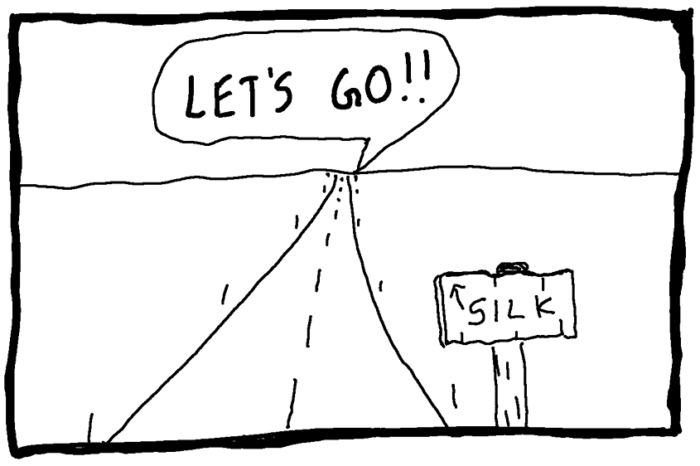The Old Boy, whom I have retained as an unlikely editor and site manager, tells me that my readers are getting antsy. “They cannot handle waiting for something for which they long, but perhaps it is good for them to do so. Character-building, you know.”
Editors talk like that. The good ones, anyway.
I’ve been hit by some kind of bug that has sapped most of my energy for the last week or so. There’s a nasty flu going around the school, and I’m not sure if I’ve got it or if I’m just getting hit by the February Mehs. Or maybe I’m allergic my aura.
Whatever the case, when I’m not at work or doing assignments for my university class, I’m sleeping.

I have had time to finish In Xanadu, however, and have moved on to The Travels of Marco Polo, which is probably one of the oldest books on this list. (It was first published in 1299 A.D.) The version I am reading came from Project Gutenberg, the site where you can download just about any public domain book in epub or pdf format.
The real challenge of this version isn’t that it’s over 700 years old, or that it was originally written in Old French — it’s that the text is 80% footnotes.
I probably should have read Travels before reading In Xanadu, but I honestly didn’t realize Travels was on the list of 1,000 Books to Read Before You Die. I should have guessed. It is a popular text, and one of the earliest “travel books.” It was the entire inspiration for William Dalrymple’s journey and has inspired countless others to wander around Asia, getting both lost and diarrhea.
Ah, the good ol’ days.
The Travels of Marco Polo is an example of European Medieval Literature, which can be a little difficult to get into. We modern readers understand modern books in ways that we take for granted; we all recognize that modern books are written to sell, follow certain kinds of structures, adhere to sets of rules that are specific to genre. We assume every author wants to write a bestseller and reach as wide an audience as possible.
For Medieval Literature, though, publishers didn’t exist, and who knows what authors were thinking? There was no printing press, so it is unlikely that people wrote books in hopes of becoming rich and famous. It was just too difficult and too costly to make copies of the texts — only the incredibly wealthy or members of the aristocracy could afford them. Were these authors just writing for posterity? For fame, or to add to academic knowledge? Nobody knows, but very few copies were probably made initially. Some sources say there were only a few dozen, all copied by hand.
More copies would have came slowly after that, until the printing press came about (1440 A.D.), at which point everyone started shouting in their pool and wielding big hammers on horseback.
The truth probably is that Marco Polo told his story for posterity and would have been pleasantly surprised to realize it’d last as long as it has. Either that or he was just really bored in prison and dictated this book to kill time.
